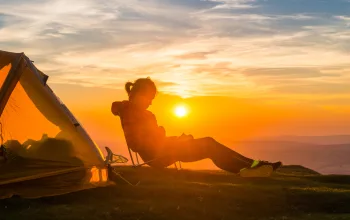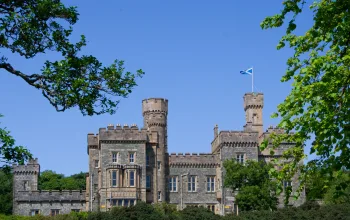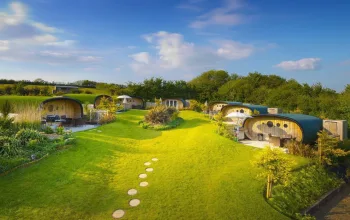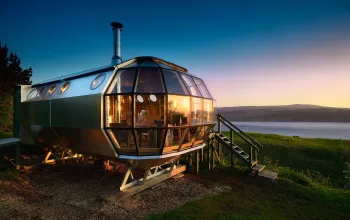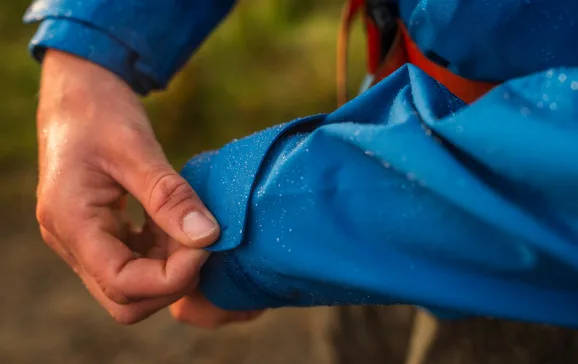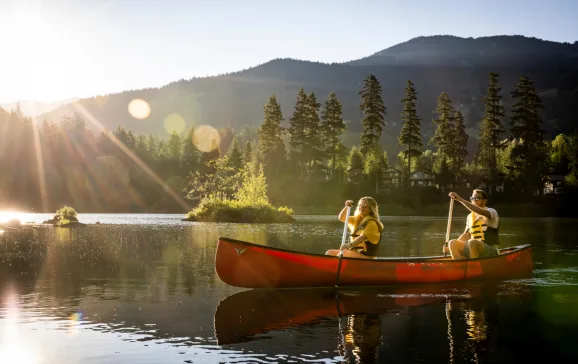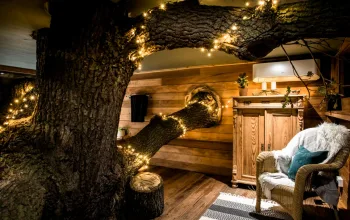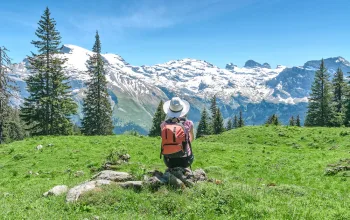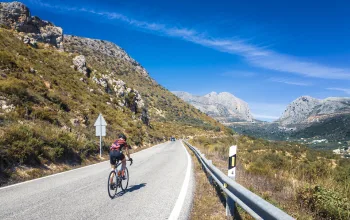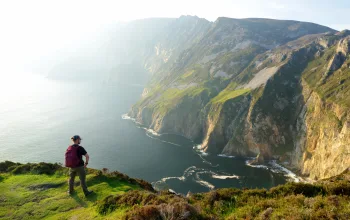St Helena is the best-kept secret of the South Atlantic. A 47-square mile island roughly midway between Africa and South America, it is one of the remotest settled islands in the world. A sub-tropical paradise, it is also one of the most spectacular.
With its uniquely rich diversity, both built and natural, St Helena - a British Overseas Territory - offers many things to see and lots to do, from visiting the Georgian town, to hiking the rolling hills or exploring the striking geology at Sandy Bay.
St Helena is home to fascinating heritage and varied nature, with breathtaking views from the highest peaks, inviting waters, and quaint countryside. Plus, you can indulge your wild side by diving, snorkelling, sailing and swimming in the clear, warm waters of the South Atlantic.
What's more, it's easier to reach than you might think. With new and improved flights via Johannesburg, St Helena is undoubtedly a holiday destination with a difference.
Here are six reasons to put this island on your must-visit list.

Spectacular scenery
St Helena is a blend of serene beauty and untamed and accessible natural experiences. Venture inland away from the rugged coastline and you’ll find ancient fortifications with hidden chambers, desert landscapes, verdant terrain and a remarkable hidden heart-shaped waterfall - a true romantic wonder.
This wonderful scenery can be explored by foot or 4x4 tour for a little added adventure. A full Island tour, which usually lasts about 4-5 hours, is a great way to explore the whole Island; to discover the contrasts in geology, nature and architecture. You can arrange tours around the island with various local tour operators or hire a car and explore the island on your own.

Wonderful wildlife
St Helena has an incredible range of wildlife. Its remoteness - 700 miles away from the nearest other land - means that it is home to many unique species. Some 455 species of invertebrates are found here and include the Blushing Snail, the Spiky Woodlouse, the Vulturine and Golden Leafhopper. St Helena also boasts a near perfect bee population.
The island is also a fantastic destination for birdwatchers. Look out for the rare and reclusive native Moorhen and be prepared to be ‘visited’ by inquisitive Fairy (White) Terns. You can observe colonies of Noddies, Boobies, Petrels and Terns on the offshore stacks by boat, and take a walk to spot the Wirebird (St Helena Plover) – the last surviving endemic land bird on St Helena. Featured on St Helena’s coat of arms, it is much-cherished by residents.
- READ NEXT - 10 Best Cycling Holidays in Europe

Fascinating history
The history of St Helena touches many aspects of world history. Discovered by the Portuguese in 1502, it became a Dutch then a British possession. It was an important port of call at the height of British Empire, before the opening of the Suez Canal and the advent of steamships.
The remote South Atlantic Ocean location has also meant it was used as a place of exile for key prisoners, including, of course, Napoleon, who died on St Helena. His 'home', Longwood House is a must-see for visitors. The island also played an important role in the abolition of slavery. St Helena’s heritage provides a significant legacy of fortifications, remains, historic buildings, and what has been described as 'the quintessential Atlantic port' – Jamestown. Indeed, the town's Main Street has been described as ‘one of the best examples of unspoiled Georgian architecture anywhere in the world.

Great diving
Clear, warm waters, shipwrecks and fascinating marine life - including whale sharks and rays - make St Helena a fantastic destination for snorkelling and scuba diving trips. Dive site habitats vary from rocky reefs with caves and boulders to cobbles and sand, all teeming with marine life - and all within easy reach of the capital, Jamestown.
Sea temperatures vary from 66 to 75°F (19 to 25°C) and visibility from 16 to 130 feet, with dives varying between 40 and 130 feet. Most dive sites are located on the leeward side of the Island where divers can experience a bit of surge from the ocean swells, but there are no strong currents. These dives are suitable for both beginners and advanced divers.

Superb hiking
With its rugged landscape and striking scenery, St Helena has much to offer hikers, as many of its coastal regions can only be reached on foot. There are 21 Post Box walks designed by the St Helena Nature Conservation Group to help hikers enjoy the wide variety of landscapes and natural and man-made attractions.
However, many island walks are designed to accommodate all enthusiastic walkers, including children. Despite being less difficult to complete, these walks are a great way for everyone to discover St Helena. The St Helena National Trust offers a walking tour of the Diana’s Peak National Park for those interested in the endemic flora and fauna. Diana’s Peak also offers the highest point on the island, with the summit sitting at 823m where you can enjoy panoramic views across St Helena.
The island also hosts an annual Festival of Walking during April. This year's festival - the 8th - features 22 guided walks.

Getting there just got easier!
Yes, it's remote. The nearest land is Ascension Island, which is 703 miles to the north west. It's 1,200 miles off the south-west coast of Africa and 1,800 miles from the coast of South America, so getting to St Helena Island is an adventure all in itself!
In 2017 the first scheduled flight between St Helena and South Africa started. Airlink now operates a direct weekly Saturday service between St Helena's airport and Johannesburg (via a refuelling stopover in Namibia). Return fares can be found at flyairlink.com. And a new midweek flight to and from Cape Town began in December 2019.
A monthly charter flight to Ascension Island occurs the second weekend of each month and returns to the island on Sunday commencing to Johannesburg. St Helena is also a popular stopping-off point for many an Atlantic Ocean cruise ship and also welcomes visiting yachts!
For more information about everything this wonderful island has to offer, go to sthelenatourism.com
- READ NEXT - 6 of the best UK mini-adventures







